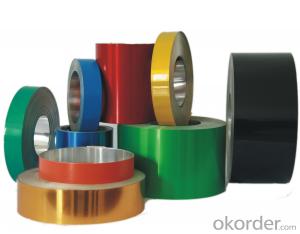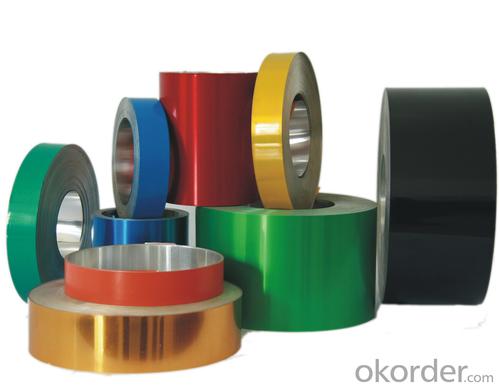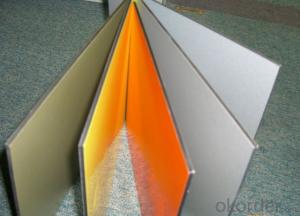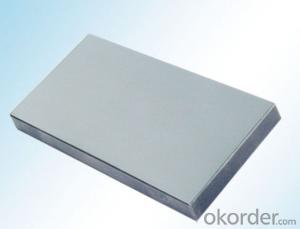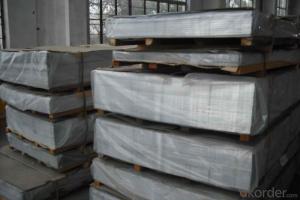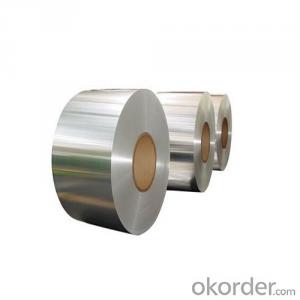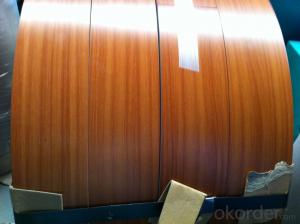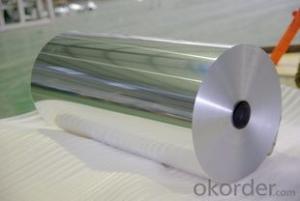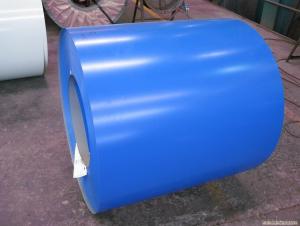4x8 White Aluminum Sheets for Medicine Bottle Caps Colorful Aluminium Foil
- Loading Port:
- Shanghai
- Payment Terms:
- TT OR LC
- Min Order Qty:
- 5 m.t.
- Supply Capability:
- 9000 m.t./month
OKorder Service Pledge
OKorder Financial Service
You Might Also Like
Specification
Product Description
Alloy: 8011
Temper: H14
Thickness: 0.17 to 0.21mm
Width: 30 to 800mm
Type: In coil
ID of the coil: 76mm, 152mm, etc.
Tensile strength: 125 to 155Mpa
Elongation: 2.0 to 3.0
Earring rate: < 2%
Coating type:
A. One side color coating and the other side transparent protective lacquer
B. Both sides transparent protective lacquer
Main applications: Aluminum closures, pharmaceutical vial seals, flip off / tear off vial seals
Packing: 80~100kgs per coil or as your requirement and use strong wooden box or pallet
Delivery Time: 25~35days after order and deposit
Payment: 30% T/T in advance, 70% balance payment against copy of B/L
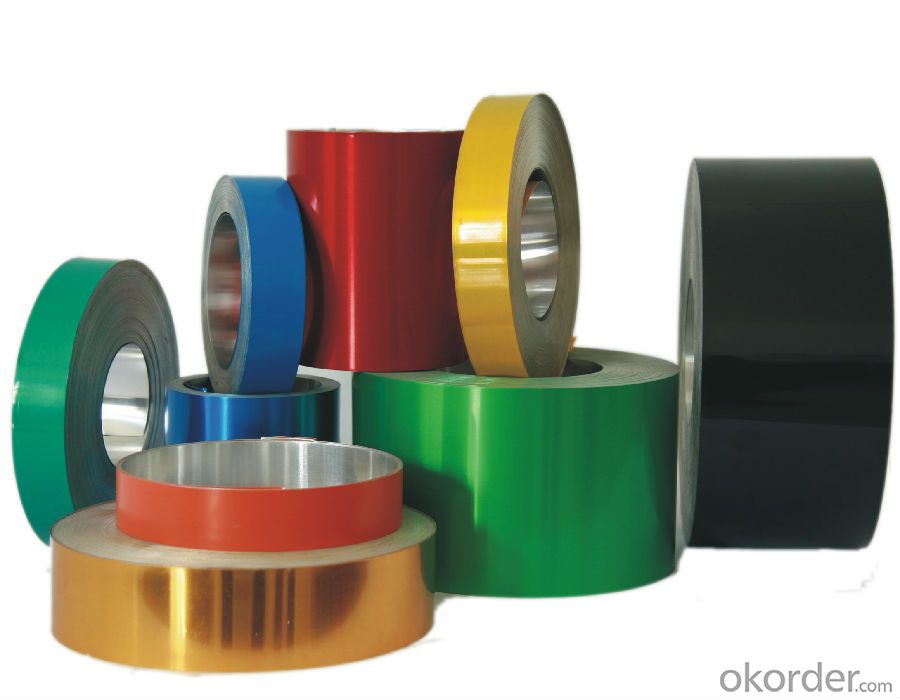
Our Services
we have more than 15 year experience of coating
we gurantee quality and very good service!
the third company test shanghai ccic
we used chalco dc material only !
any more info, please contact me freely
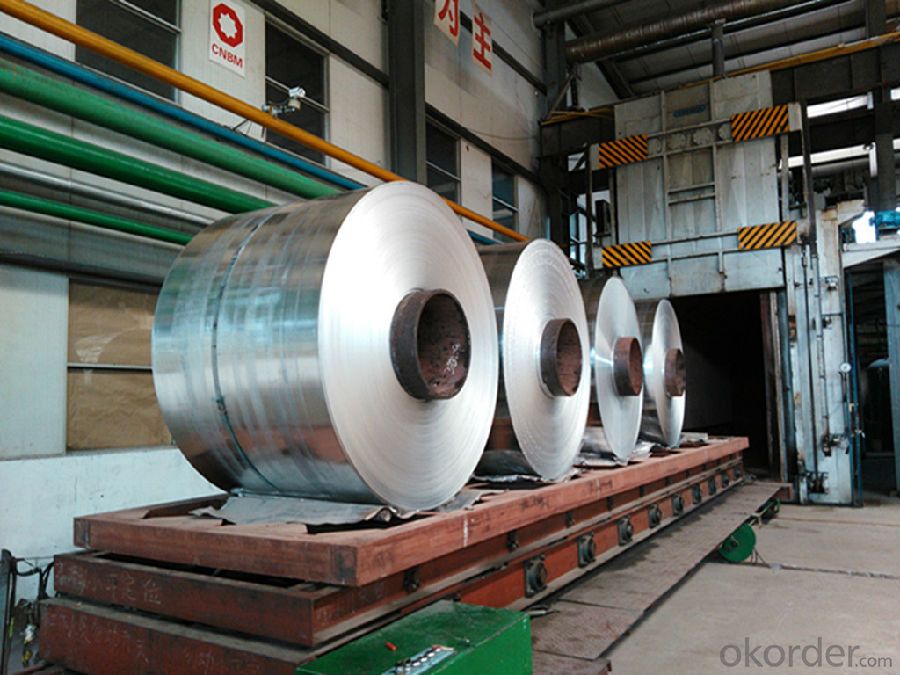
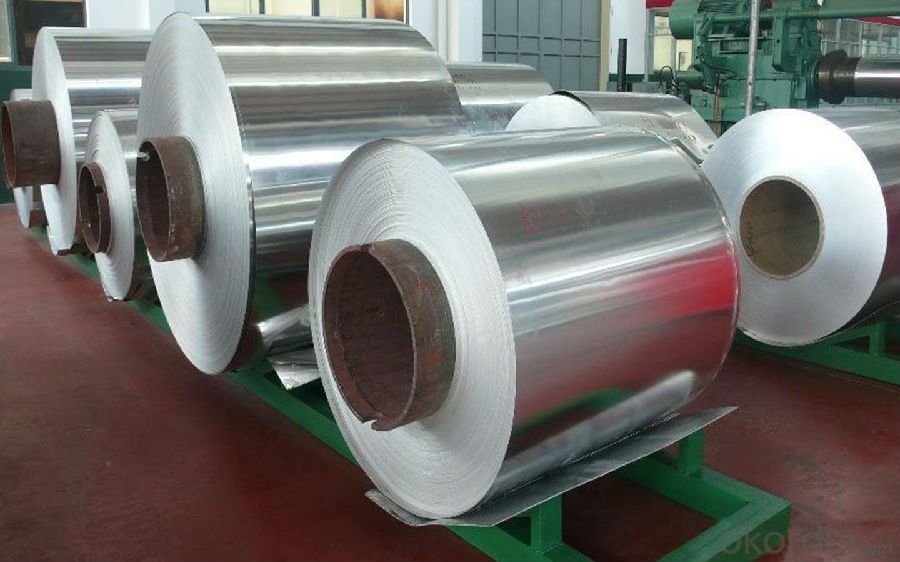
- Q: Can aluminum sheets be used for bus bodies?
- Yes, aluminum sheets can be used for bus bodies. Aluminum is a lightweight and durable material that is commonly used in the construction of bus bodies. Its high strength-to-weight ratio makes it an ideal choice for bus manufacturers, as it allows for improved fuel efficiency and increased payload capacity. Additionally, aluminum is highly resistant to corrosion, which is beneficial for vehicles that are constantly exposed to various weather conditions. Moreover, aluminum can be easily formed and fabricated, allowing for the creation of complex shapes and designs. Overall, aluminum sheets are a popular choice for bus bodies due to their strength, lightness, corrosion resistance, and versatility.
- Q: Can aluminum sheets be used for solar reflectors?
- Indeed, solar reflectors can utilize aluminum sheets. With its high reflectivity and exceptional resistance to heat, aluminum emerges as an optimal material for such purposes. The reflectiveness of aluminum sheets aids in redirecting and intensifying sunlight onto solar panels or other solar equipment, thereby maximizing their energy efficiency. Moreover, the lightweight and durable nature of aluminum renders it effortlessly manageable and fitting for outdoor applications.
- Q: I've created a sculpture out of aluminum foil, but it's pretty flimsy. What can I paint or cover it with that would harden and support it? I was thinking a resin or something, but I have no experience with resins or epoxies... Any suggestions?
- you can use more aluminum and add layers to it. It would depend on the shape and size what is the best, but yes, you could use fiberglass and resin - as long as it is not so flimsy that the weight of the additional material will already distort it. If you just use resin that could work as long as it is reasonably flat, as the resin will run, but you could paint a number of thin coats on. Depending how it looks you could also use something like bondo which is car repair putty which is resin based. It might be easier to work with as it is thicker and it can be carved/sanded easily. Though you need to use it outside or with very good ventilation before it is set.
- Q: This question asks about the key factors to consider when buying aluminum sheets, including material properties, thickness, surface finish, and other relevant details.
- <p>When purchasing aluminum sheets, consider the following specifications: 1) Alloy type, which determines properties like strength and corrosion resistance; 2) Thickness, measured in millimeters, affecting the sheet's durability and application; 3) Width and length, which should match your project requirements; 4) Surface finish, such as mill finish, anodized, or painted, which impacts aesthetics and protection; 5) Temper, indicating the hardness and formability of the sheet; 6) Certifications, ensuring the sheet meets industry standards; 7) Supplier reputation and customer reviews for quality assurance. These factors will help you select the right aluminum sheet for your specific needs.</p>
- Q: Can the aluminum sheets be used for manufacturing heat sinks?
- Yes, aluminum sheets can be used for manufacturing heat sinks.
- Q: How to clean the aluminium oxide on the surface of aluminum? What kind of materials should we use to clean the thin aluminum sheet, and what's the concentration?
- you can answer sodium hydroxide solution, dilute acid is useless, aluminum's oxide film is very thick,as for concentration, aluminum will be passivating in concentrated sulfuric acid. if you are high school student,higher concentration is better, you can complete deoxidation by abrasive paper.
- Q: Can aluminum sheets be used for outdoor applications?
- Certainly, outdoor applications can involve the utilization of aluminum sheets. Aluminum, being both resilient and resistant to corrosion, proves itself suitable for a diverse array of outdoor purposes. It is frequently employed in tasks such as roofing, siding, guttering, as well as outdoor signage. A distinguishing feature of aluminum sheets is their exceptional strength-to-weight ratio, rendering them perfect for situations where a material that is simultaneously lightweight and robust is imperative. Moreover, aluminum possesses the inherent ability to generate a safeguarding oxide layer, thereby shielding itself from external elements. Consequently, it emerges as a dependable option for outdoor settings.
- Q: How does the thickness of aluminum sheet affect its strength?
- The thickness of an aluminum sheet directly affects its strength. Generally, thicker sheets tend to be stronger and more rigid due to the increased amount of material present. Thicker sheets are capable of withstanding higher loads and are less prone to bending or deformation under stress. However, it is important to note that other factors such as alloy composition and processing techniques also play a significant role in determining the overall strength of an aluminum sheet.
- Q: Can you really block thermal imaging with glass or aluminum foil? If not, what can?
- Yes you can better with aluminum foil and somewhat little with glass. Thermal imaging takes a heat image based on an object radiating out more heat than it's background. The heat is all in the infrared so does not depend on visible light Aluminum foil is very effective in radiating back infrared waves, and very little infrared will pass thru the foil. Glass will let about 90 percent come thru, but it depends on the angle of incidence, with higher angles reflecting more infra red. But Stand in front of a window with the sun shining in, and you see how much infrared from the sun you can feel on your skin . Foil is probably about 95 % effective in reflecting infrared, depending on how shiny it is. In real life situations that is why the inside of thermos bottles are shiny aluminum (or silver) to reflect infrared heat, and fireman wear aluminum suits into fires to protect from the radiant heat ,which is the infrared. So if you wore an aluminized or silverized suit , a thermal imaging device would have a hard time seeing you from the background radiation given off by other objects. You have to give off more radiant heat than surrounding objects to be noticed by a thermal camera
- Q: I wish to purchase an 8' step ladder as well as a medium length extension ladder. What are the pros and cons of aluminum vs. fiberglass?
- Fiberglass Vs Aluminum Ladder
Send your message to us
4x8 White Aluminum Sheets for Medicine Bottle Caps Colorful Aluminium Foil
- Loading Port:
- Shanghai
- Payment Terms:
- TT OR LC
- Min Order Qty:
- 5 m.t.
- Supply Capability:
- 9000 m.t./month
OKorder Service Pledge
OKorder Financial Service
Similar products
Hot products
Hot Searches
Related keywords
